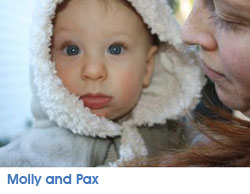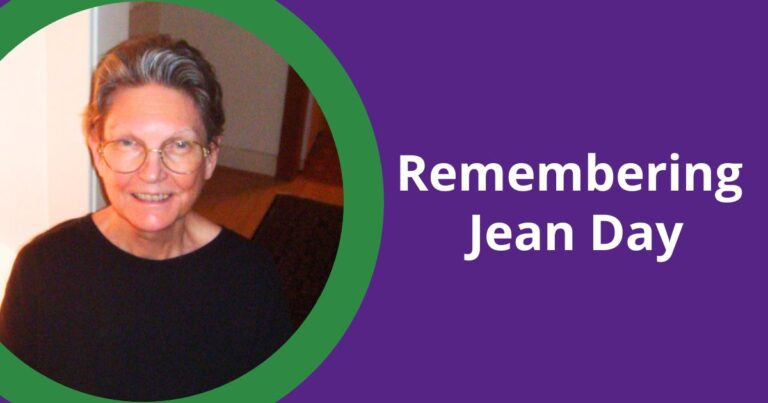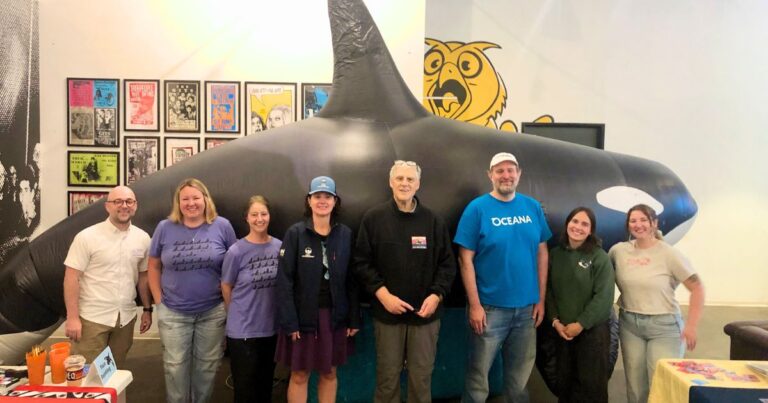 Senate hearings on public exposures to toxic chemicals, I wasn’t sure if I could handle the drastic disruption to my life. It meant taking several days off work and flying from Seattle to Washington, D.C. with my very active seven-month-old boy. Now that I’ve testified, however, I know for sure that it was worth all the effort.
Senate hearings on public exposures to toxic chemicals, I wasn’t sure if I could handle the drastic disruption to my life. It meant taking several days off work and flying from Seattle to Washington, D.C. with my very active seven-month-old boy. Now that I’ve testified, however, I know for sure that it was worth all the effort.
Listen to Molly Gray’s testimony
The policy debate surrounding toxic chemicals is highly technical. It’s easy to get lost in the abstract details. I was there as an individual, not an expert, and I think my presence was a constant reminder that what we don’t know about toxic chemicals is harming real people, right now.
If I’m not an expert, why was I asked to speak? I was one of nine participants in a Washington Toxics Coalition study called ‘Earliest Exposures.’ This was a study of pregnant women to investigate what toxins our developing babies were exposed to during pregnancy. The study tested for phthalates, mercury, PFC “Teflon chemicals”, flame-retardants, and BPA.
I will admit – I assumed I would test chemical-free. After all, for the last five years I had done everything I could to reduce my exposure to toxic chemicals. I ate organic food, chose low-mercury seafood and used personal care products without phthalates and fragrances.
Despite my efforts, my results were higher than the national average. I had the highest mercury of all the pregnant women tested. I was shocked that my levels were as high as they were. Turns out these chemicals are ubiquitous in the environment. As clean as I tried to be, it was not enough to protect my baby boy. In the words of Senator Lautenberg, in his remarks today:
… in essence, the American public has become a living, breathing repository for chemical substances. And when the chemicals …show up in our children’s bodies, we have a potentially dangerous situation.
Today, along with Dr. Tracey Woodruff and several other distinguished scientists and policy experts, I asked Congress to take immediate steps to eliminate the use of persistent toxic chemicals — those that build up in our bodies or are passed on to the next generation. I also asked for legislation to reduce the use of chemicals that have known serious health effects and ensure that only the safest chemicals are created and used in everyday products. Lastly, I asked for safety standards that protect our most vulnerable populations like pregnant women and developing fetuses.
Remember the days when cigarette manufacturers claimed that there was no definitive proof that tobacco smoke harmed health? Safe until proven harmful is not good enough for my baby or me.
Fifty years from now, my son Pax will be able to brag that he contributed to a scientific study on toxic chemicals before he was even born, and that he flew to Washington, D.C. for the first time when he was only seven months old. Let’s hope that, by then, the idea that his generation grew up surrounded by products made with toxic chemicals will seem as outrageous as people smoking on airplanes seems to my generation.
Again, in the words of Senator Lautenberg:
Our children should not be used as guinea pigs. It’s time to update the law to protect them.
Tell Congress you agree: It’s time to update our nation’s laws on toxic chemicals.
Resources for making safer choices
- http://www.watoxics.org/healthy-families/safe-start-for-kids-1/choices-for-a-healthy-pregnancy
- http://www.healthystuff.org/
- http://www.drgreene.com/
- http://healthychild.org/



